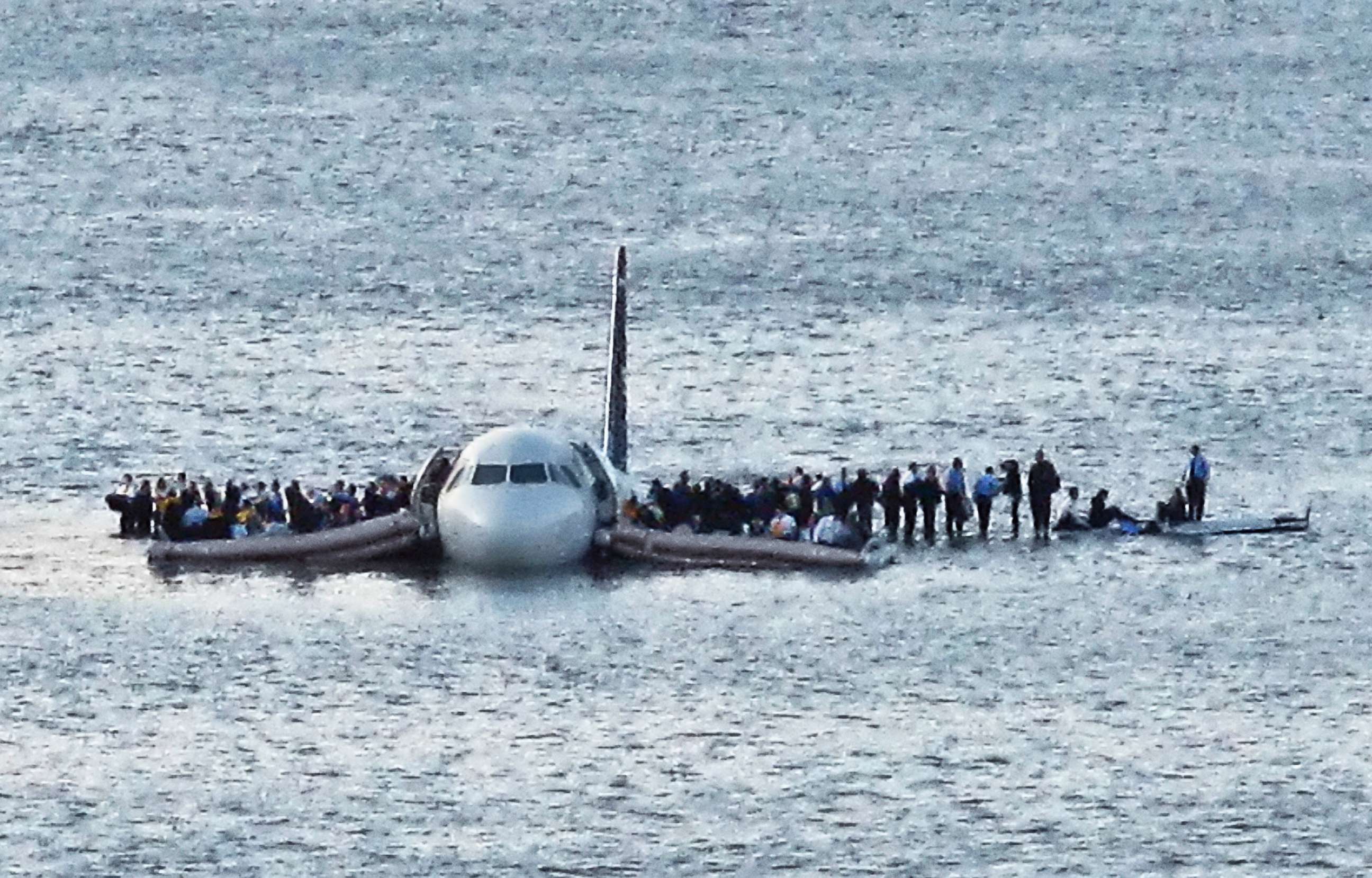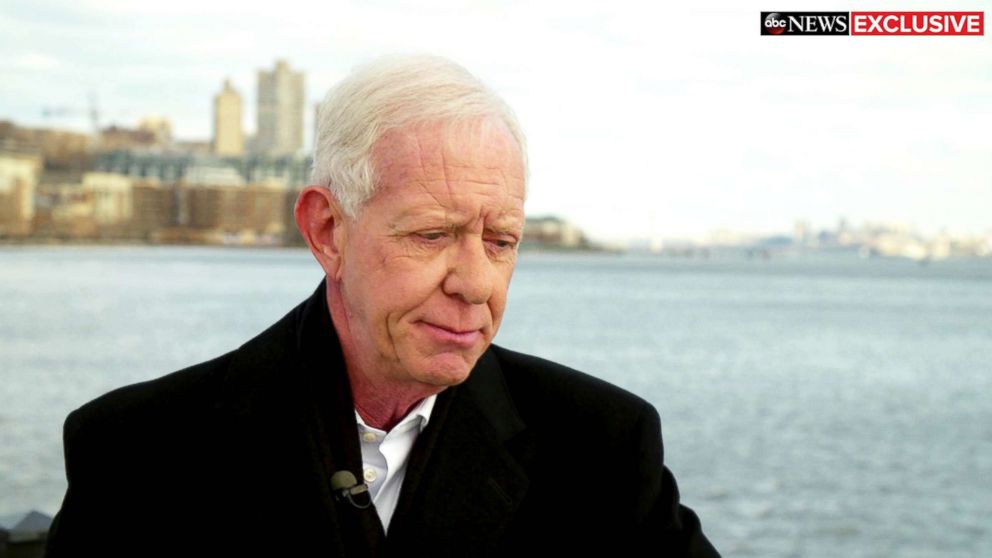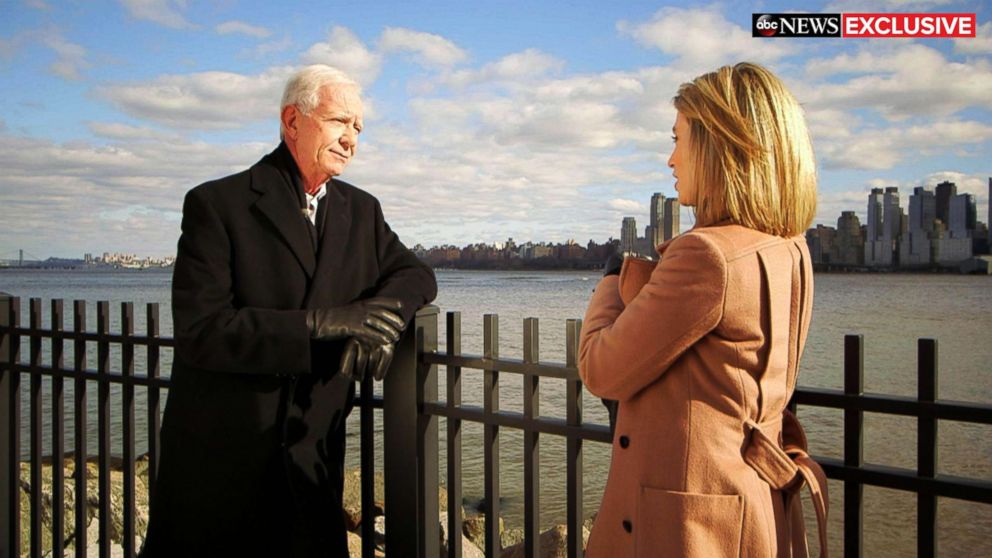'All the pieces had to come together': Capt. Chesley 'Sully' Sullenberger says on 10th anniversary of miraculous Hudson River landing
Chesley 'Sully' Sullenberger says his mind was focused only on the landing.
Whenever Capt. Chesley "Sully" Sullenberger sees the Hudson River and the skyline of Manhattan, he says his thoughts rewind to the bitterly cold day of Jan. 15, 2009, when he and co-pilot Jeff Skiles saved themselves and 153 passengers and crew members by pulling off one of the most miraculous emergency landings in the history of U.S. commercial aviation.
In an exclusive interview with ABC News, airing on the 10th anniversary of the Hudson River splash landing of US Airlines Flight 1549, Sullenberger, now retired and 67, said the success of the life-saving feat required the heroic actions of more than just him and Skiles.
Watch "Good Morning America" Tuesday, Jan. 15, at 7 a.m. ET for Amy Robach's exclusive interview with Capt. Chesley "Sully" Sullenberger.
"I think about not only what we did but what everybody else did," Sullenberger told ABC News's Amy Robach. "All the pieces had to come together. This group of strangers had to rise to the occasion and make sure that they saved every life."

Clear for takeoff
At 3:24 p.m., Flight 1549 was cleared for takeoff from Runway 4 at LaGuardia Airport bound for Charlotte, North Carolina. Less than a minute after departure, Capt. Sullenberger radioed air-traffic controllers that he was at 700 feet and climbing to 5,000 feet, according to a report released by the National Transportation Safety Board.
Sullenberger, a former U.S. Air Force fighter pilot with more than 20,000 flying hours under his belt, was instructed to climb to 15,000 feet, according to the National Transportation Safety Board report.
Somewhere between 2,900 and 3,000 feet, the Airbus A320 struck a flock of Canadian geese.
"Mayday! Mayday! Mayday! This is Cactus [1549]. Hit birds. We've lost thrust in both engines. We're turning back towards LaGuardia," Sullenberger radioed the airport.

About 3:28 p.m., Sullenberger radioed that he was unable to get back to LaGuardia, and warned, "We may end up in the Hudson," according to the NTSB report.
Seventeen seconds later, Sullenberger made a chilling radio transmission: "We're gonna be in the Hudson."
'I never thought about my family'
In the ABC News interview, Sullenberger, looking out over the Hudson River from the New Jersey side, said his efforts were completely focused on making the emergency water landing.
"I never had any extraneous thoughts in those few seconds that we had," Sullenberger said. "I didn't allow myself to and I didn't have any inclination to. I never thought about my family. I never thought about anything other than controlling the flight path and solving each problem in turn until, finally, we had solved them all."
The crippled aircraft, loaded with fuel, swooped down over the George Washington Bridge, missing the Hudson River span by about 1,000 feet.
A surveillance camera captured the plane, its nose slightly up, landing on its belly in the icy river near the Intrepid Sea, Air & Space Museum.
After the landing, Sullenberger opened the cockpit door and ordered the plane to be evacuated. Terrified passengers described him as being calm under fire, but now he reveals he was anything but cool.
"I think people with certain temperament gravitate toward certain jobs and flying is certainly one of those, and I think the training and the experience we develop tends to make us more that way. It develops in you an ability to summon up from somewhere within this ability to create a sense of calm, a professional calm," Sullenberger said. "But we weren't calm. We couldn't be calm. The stress was too intense, but we had that focus ... to be able to do the job in spite of how stressful it was."
As the airplane drifted south in the strong current of the Hudson, ferries, tugboats, private boaters and first responders raced to catch up to it.

The flight crew evacuated passengers onto the plane's wings. It was about 20 degrees outside.
"Passengers and crew had to help out an elderly passenger who had been boarded in a wheelchair, they had to help a young family of four that included a 9-month-old child. Had that not occurred, we might have lost someone," Sullenberger said.
'4 terrorizing hours'
Sullenberger searched the plane twice to make sure everyone was evacuated before exiting the aircraft and joining everyone on the wings. But he said his terror was far from over.
"I was deathly afraid after the landing was accomplished and we'd pulled that off that someone might slip into the water unnoticed and drown, or succumb to hypothermia," Sullenberger said.
All five crew members, including Sullenberger, and 45 of the rescued passengers were taken to local hospitals for treatment. According to medical records, two passengers and a flight attendant suffered serious injuries and other passengers were treated for hypothermia, according to the NTSB report.
Sullenberger said it took hours before he could finally relax.
"I was on pins and needles for four terrorizing hours until finally that evening -- still in the hospital being evaluated -- I got the word it was official, everyone was safe," Sullenberger told ABC News. "Only then could I feel the weight of the universe being lifted off my heart."
'Miracle on the Hudson'
As word of the commercial jet's successful river landing spread across the nation, New York officials held a news conference and heaped praise on Sullenberger, Skiles and the rest of the flight crew.
"It would appear that the pilot did a masterful job of landing the plane in the river and then making sure that everybody got out," then-New York City Mayor Michael Bloomberg said at the time. "I had a long conversation with the pilot. He walked the plane twice after everybody else was off and tried to verify that there was nobody else on board and assures us there were not."
Then-New York Gov. David Paterson added: "We have a heroic pilot who saved himself and 154 other passengers. We've had a Miracle on 34th Street and now I believe we've had a miracle on the Hudson."




